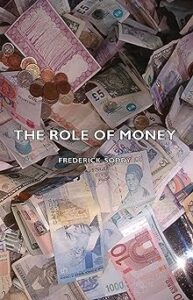In exploring the essence of banks within an honest money system, a profound shift in perspective emerges.
Underpinning the very fabric of economic transactions, banks take on a new dimension—a realm where integrity and stability define their pivotal role.
As we delve into this financial landscape, the nuanced functions and intrinsic nature of banks within an honest money system unravel.
This system, unshackled from the whims of manipulation, champions a recalibrated ethos where trust and transparency reign supreme.
Through an honest lens, let’s dissect the transformative functions of banks within a monetary framework founded on integrity and fairness.

Deciphering the Role of Local Banks in an Equitable Financial System
Within the intricate realm of local banks lies a critical inquiry: who should rightfully own and govern these financial institutions?
Chartering a path steeped in responsibility and authority, privately owned corporations, under the charter of respective States, stand as stewards of local banks.
However, while the Federal Government oversees currency regulation, these private banks are entrusted with the lending of citizens’ funds.
This interplay between governance, ownership, and operation is pivotal in shaping the banking landscape within a just and equitable financial system.
Explore “The Separation of Business and State” by Ryan Dawson, a compelling analysis of the need for clear boundaries between corporate interests and government policy
Structure and Operation of Local Banks within State Oversight
Local banks, ideally owned by privately held corporations, find their charter within the respective States where they reside.
Oversight falls under State control while the Federal Government maintains the power to coin and regulate currency.
These private banks, entrusted with the lending of citizens’ funds, operate solely with United States legal tender, accepting deposits brought in by private individuals or corporations.
Funds deposited undergo classification into demand and time deposits, allowing owners different withdrawal privileges.
Time deposit funds, available for lending purposes, serve as a crucial resource for business loans, essential for genuine business activities within the financial system.

Ownership of Local Banks
Local banks are ideally owned by privately held corporations chartered within their respective states.
This model ensures a decentralized structure, allowing these banks to serve the community’s financial needs effectively.
The Federal Government oversees money creation and regulation, while private banks, owned by citizens, manage lending operations.
Expanding on this, state-chartered banks operating as private entities within their local communities enhance economic autonomy.
By maintaining this structure, it facilitates financial services tailored to the specific needs of residents, fostering a closer connection between banking institutions and the people they serve.
Government Control of Privately Owned Banks
While these banks are state-chartered and privately owned, there’s a critical role for the government in establishing fair regulations.
State governments bear the responsibility of framing and enforcing equitable rules for the functioning of these banks, ensuring stability and integrity within the financial system.
Emphasizing the significance of state-level oversight highlights the importance of balancing private enterprise with regulatory measures.
This ensures transparency, accountability, and adherence to ethical practices, safeguarding the interests of depositors and borrowers alike.

Types of Transactions and Deposits
Local banks operate primarily with United States legal tender deposited by individuals or corporations.
These funds are categorized into two main types:
- Demand deposits, accessible for immediate withdrawal by depositors
- Time deposits, which can be lent out for specific durations.
Further details on the distinctions between demand and time deposits can be outlined, underscoring how these divisions provide flexibility and stability within the banking system.
Highlighting their role in meeting short-term financial needs versus facilitating long-term investments would enhance understanding.
Borrowing Facilities and Loans
Businesses and individuals can avail themselves of lending facilities offered by local banks, primarily utilizing funds from time deposits.
Expanding on this aspect would involve discussing the significance of these loans in stimulating economic activity, supporting business growth, and meeting personal financial requirements.
Highlighting responsible lending practices and the role in fostering economic development would provide valuable context.
Explore “The Role of Money” by Frederick Soddy, a groundbreaking analysis of monetary systems, revealing how money shapes economies and influences global stability.

Mechanisms for Fund Transfer and Check Clearing
Bank checks remain a crucial mechanism for transferring money, providing convenience in financial transactions.
Private banks handle the mechanics of fund transfers and maintain efficient check-clearing systems.
Detailing the efficiency and security of these systems, as well as advancements in digital banking facilitating quick and secure transactions, would illustrate the evolving landscape of financial technology.
Preventing Over-lending and Profit Mechanisms
Preventing over-lending is a critical factor, primarily achieved through transparency in reporting deposits and money in circulation.
Highlighting the role of transparency in maintaining the balance between deposits and lending capacity within banks would reinforce the importance of accurate reporting and ethical banking practices.
Discussing service fees as a primary revenue source for banks would provide clarity on their profit mechanism
Safeguarding Against Theft in Currency Transfers
To fortify security during United States legal tender transfers among banks, the government can issue large denomination currency for inter-bank settlements, exchanged for smaller denominations.
These sizable notes would be exclusively used between banks, a technical detail subject to operational logistics.
Uniformity in Money Settlements for Individuals and Corporations
The process of money settlements for both borrowers and depositors within banks would remain unchanged, ensuring a seamless and consistent experience akin to current banking practices.
Exchange of Currency for International Transactions
When customers seek to exchange dollars for foreign currencies like pounds, francs, or yen, banks would dispatch dollars to a designated agent acting on behalf of the Congressional Board of Money.
This agent would effectuate the exchange by acquiring the desired foreign currency.
Should the exchange involve gold as a basis, it’s crucial to note that gold’s price should fluctuate freely based on market dynamics, devoid of a stabilized value.

Streamlining Banking Operations
The propositions discussed here introduce a structured and secure framework for banking operations within an honest money system.
From governance to currency exchange mechanisms, these reforms aim to ensure transparency, efficiency, and equitable practices in the banking sector.
The emphasis on uniformity in transactions, safeguards against theft, and international currency exchanges underlines the commitment to fostering a fair and reliable financial landscape.
